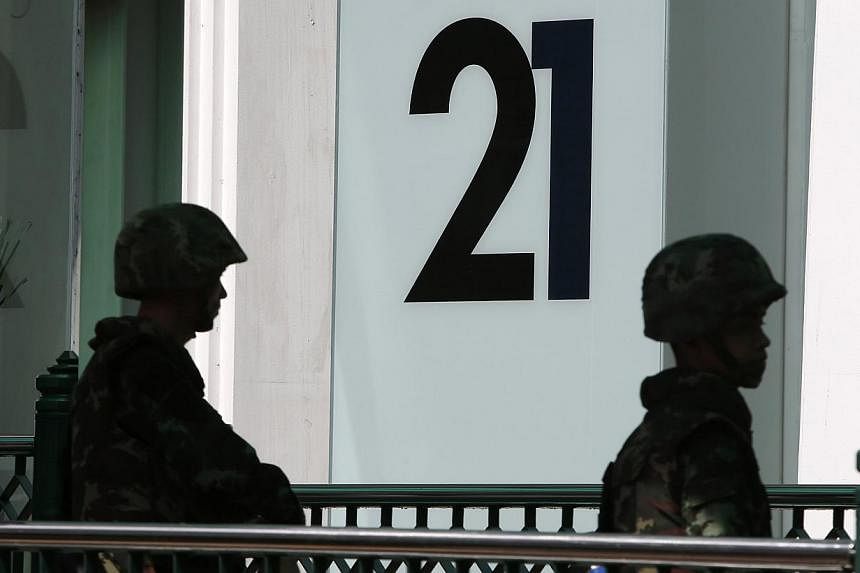BANGKOK (Reuters) - Thailand's factory output dropped for a 13th straight month in April, underscoring the damage political unrest has caused and the tough job the new military government faces reviving an economy that shrank in the first quarter.
The decline was less than forecast. Industrial output in April was 3.9 per cent lower than a year earlier, the Industry Ministry said. That compared with March's revised drop of 10.5 and a 6.4 per cent decline seen in a Reuters poll.
In April, overall capacity utilisation at factories was 56.6 percent, compared with 64.3 per cent in March.
The army seized control of the country on May 22, saying it would restore order after nearly seven months of anti-government protests that have hurt confidence, domestic demand, tourism and delayed public works.
The junta is moving to tackle economic problems to get Southeast Asia's second biggest economy moving. The economy contracted 2.1 per cent in the first quarter from the previous three months, and some economists feel a recession is unavoidable.
The Commerce Ministry later on Wednesday will release customs-cleared trade data for April, expected to show a small annual rise in exports and a further slump in imports.
Tourism, which accounts for about 10 per cent of the economy, has taken a hit. Consumer confidence is at a 12-year low, weaker than it had been even after the bad floods of late 2011, violent political unrest in 2010 and a deadly tsunami in late 2004. This month, the Federation of Thai Industries (FTI) said its index of industrial confidence hit a 58-month low in April.
Growth forecasts for Thailand have been cut steadily since the unrest began in November. But some economists think the outlook may improve under the military council that this week started paying money owed to rice farmers.
The council said it will speed up spending and that a new state budget will be on time. "Its actions on the rice-buying scheme, the budget and investment plans should bode well for the economic outlook, at least in the short term," said Thammarat Kittisiripat, an economist with TMB Bank.
"We expect better economic activity in the second half, especially in the fourth quarter, along with improving external demand," he added.
Tim Condon, economist at ING in Singapore, wrote on Wednesday that after the first quarter's 2.1 per cent contraction from the prior period, "a recession looks unavoidable. However, the coupmakers are trying to put the economy on the front burner and have paid rice farmers, extended tax cuts and announced accelerated spending on infrastructure projects."

